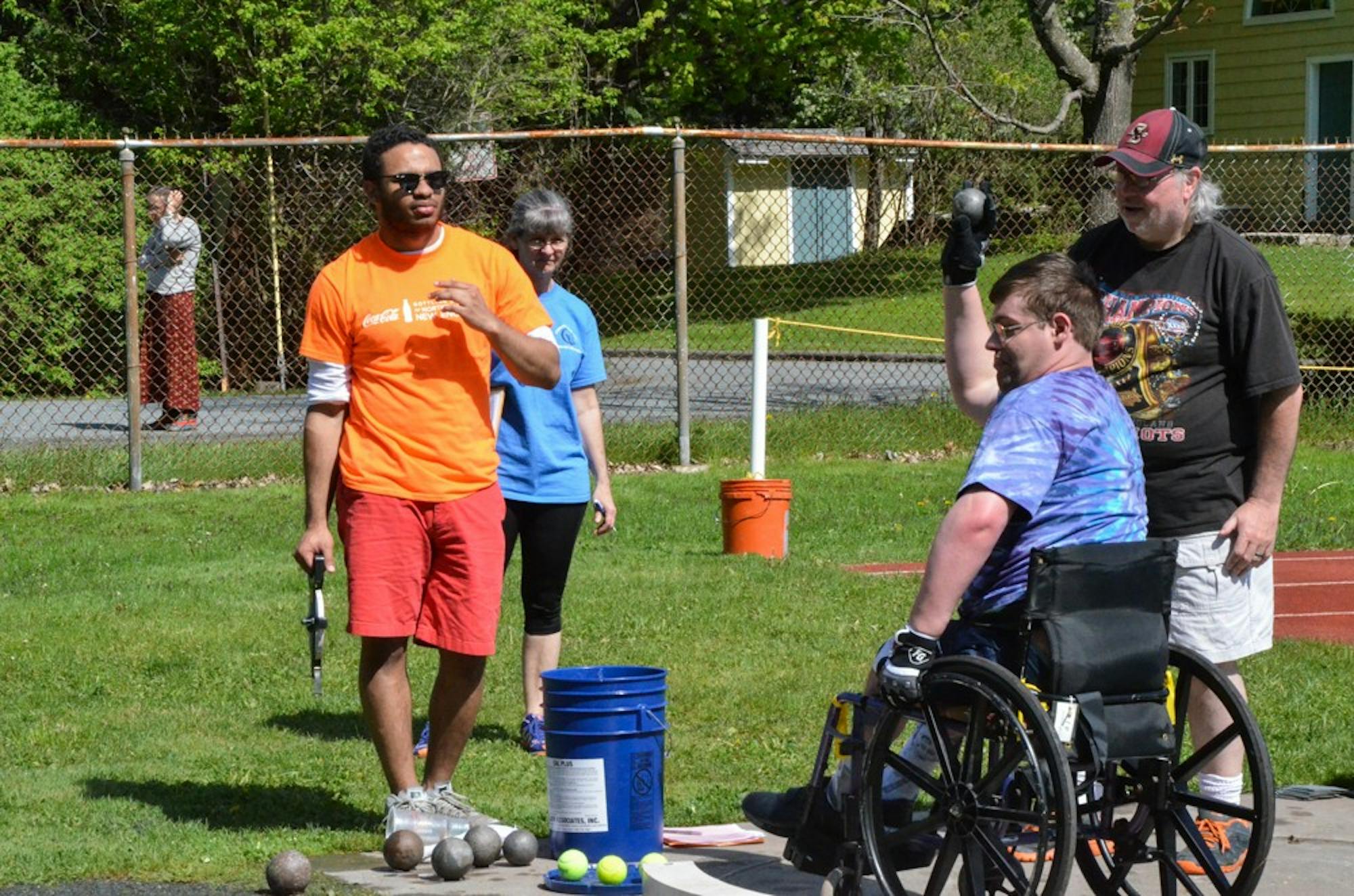This past Saturday, 80 Special Olympics athletes from the Upper Valley put on their swimsuits, jerseys and running shoes to compete from early morning to mid-afternoon in the 2016 Upper Valley Area Summer Games.
The games — which consisted of bocce, aquatic events and track and field at the College’s Karl Michael Pool and Hanover High School— were overseen by the Special Olympics Upper Valley Area Committee. The teams included Fall Mountain, Connecticut River Special Olympics, Claremont Cool Cats and the Upper Valley Hawks.
Around 15 Dartmouth students participated as volunteers, with three students as volunteer organizers and one as head coodinator. Two members of Dartmouth Emergency Medical Services volunteered at the event.
Athletes, coaches and volunteers organize the event, with Dartmouth students volunteering every year since the event began. Although this year consisted of mostly individual volunteers, in years past athletes from Greek houses, the football and lacrosse teams volunteer in groups, volunteer coordinator Rachel Sang ’17 wrote in an email.
The collective interests of organizers and athletes alike gives the Special Olympics an atmosphere that Special Olympics New Hampshire president Mary Conroy called “competitive and relaxed,” which she says is her favorite part about the event.
The Special Olympics provides children and adults in 170 countries with the opportunity to train and compete year round. Athletes are categorized based on age, ability and gender. As such, every competitor has a chance to win if the sample is large enough, which is what makes the event so special, Conroy said.
“It has been said that Special Olympics competition is sport in its truest form — everyone tries hard and takes the time to celebrate the experience and the accomplishments of others,” she said.
Last year’s summer Special Olympics had 72 participants. Special Olympics New Hampshire also hosts the Upper Valley Area Winter Games.
Event coordinator Erika Daukas ’16 got involved with the Special Olympics her freshmen year after receiving an email that the organization was looking for volunteers. She began as the coordinator of the track and field event and eventually became the director of events, a position she has held for the past four years.
This year, the employee turnover created some challenges, including making it hard to determine organizational structure, she said. Furthermore, Greek house volunteer organizer Ivan Carrier ’18 said that the timing of the event affected the attendance.
“There were a couple of [volunteers] who signed up but decided not to come because they did not want to wake up that early on a Saturday morning,” he said.
Aside from these challenges, Daukas said that the Special Olympics organization was very useful in making the event happen.
“They are very hands on,” she said. “Athletes sign up for the event through them, they bring the majority of the equipment, send in a rep the day of to make sure everything is going smoothly and create the instructions for the games.”
The combined effort of volunteers, student organizers and the Special Olympics helped to make this event a success, she said.
“I think the event worked really well, as we had over 40 volunteers — some of them coaches themselves. Everyone was smiling and events went through quicker than in previous years,” she said.
Although Daukas feels that the competition will remain the same, she recommends reinforcing institutional memory to improve the coordinating and planning of the event.
“An example of this would be having a track coordinator who’s a ’16 and a co-track coordinator who’s an ’18 so when the ’16 graduates the ’18 will have two years to find their footing.”
Overall, Saturday’s event was a good experience, Carrier said. He said that he would definitely do it again, noting the transformative power of sports.
“I have been a longtime athlete and I really appreciate what sport could do for people,” he said.




